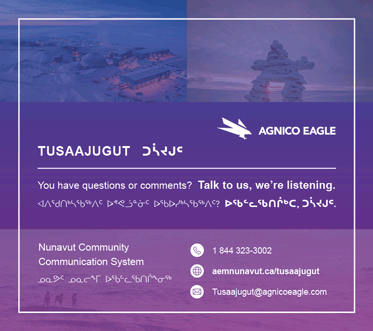'It was like like doing work in a Third World country.'
Film ban costly, tour operator says
Arctic Bay lost $200,000 this summer because of a decision by hunters to ban filming at the floe edge, says a tour operator.
Graham Dickson, an expedition leader with Arctic Kingdom Marine Expeditions based in Toronto, said he received notice of the ban from Arctic Bay's Ikajutit Hunters and Trappers Association only two weeks before his first tour in May began.
"To some extent, it was like like doing work in a Third World country," he said, describing how in Nunavut and politically unstable countries alike, businesses are at the mercy of leaders who may "change their mind on a whim."
With a summer's worth of outfitting trips to the floe edge in Admiralty Inlet in jeopardy, the company tried to negotiate with Arctic Bay's hunters, with no luck.
So Dickson had to re-route the flights of his customers, to Resolute Bay and then on to Pond Inlet, which was used as an alternate community to Arctic Bay. Dickson said the ordeal was "enormously stressful" on such short notice.
Arctic Bay's HTA passed a bylaw in May that bans filming at the floe edge after they obtained an early copy of an article published in National Geographic magazine this month.
The article portrays the community's whale hunt as wasteful, with many whales shot but never retrieved by hunters. It also describes children firing guns at whales, wounding many but killing none, with no guidance provided by adults.
Tommy Kilabuk, chair of the HTA, says the article is "inaccurate" and "damaging," and that the ban was introduced to protect hunters. But others in Arctic Bay say the ban has hurt the community's odds of attracting tourists.
Clare Kines, the owner of Kiggavik Bed and Breakfast, says he lost at least $6,000 as a result of Arctic Kingdom, which has operated out of Arctic Bay for six years, pulling out of town. He said he worries the ban will dampen business for years to come.
"People aren't going to come here, because it's not a welcoming place," he said. "Tourism is underexposed here as it is."
Kines added that the ban would be unlikely to deter the animal rights activists that hunters fear. "They'll hire a helicopter and go on out."
As well, Dickson says Arctic Kingdom has its own policy that requires its customers to obtain a release from anyone they film hunting. "We've already been doing that for years," he said.
Dickson also says he's spoken to officials at Nunavut's Department of the Environment, who doubt the HTA, which is able to regulate hunting activities, is able to outright ban cameras at the floe edge.
But that doesn't matter, because Dickson says most Arctic Bay residents, while friendly, were unwilling to offer support to a company that would violate the ban.
"We knew people in Arctic Bay who wanted to work," he said. "But there was an overreaching perception they didn't want to step out of line," he said. "In a small town, you have to live with your neighbours."
So Dickson hired about 10 hunters from Pond Inlet as guides instead. Three young hunters from Arctic Bay travelled to help the group in Admiralty Inlet, but Dickson said they received "flak" from local hunters for working with the company when they returned home.
Arctic Kingdom typically purchases food and fuel in Arctic Bay and rents trucks and snowmobiles. But they won't be spending that money in the community any more.
Dickson's company also planned to build a warehouse in Arctic Bay this summer, to store two airboats – flat-hulled boats that are propelled by aircraft engines, rather than propellers, allowing them to travel over thin ice.
Now the boats are being stored in Pond Inlet. And Dickson said the company won't work out of Arctic Bay again, until they are assured it's a stable place to do business.
"To consider Arctic Bay, we'll need some letters from various government agencies to ensure this type of thing doesn't recur."





(0) Comments